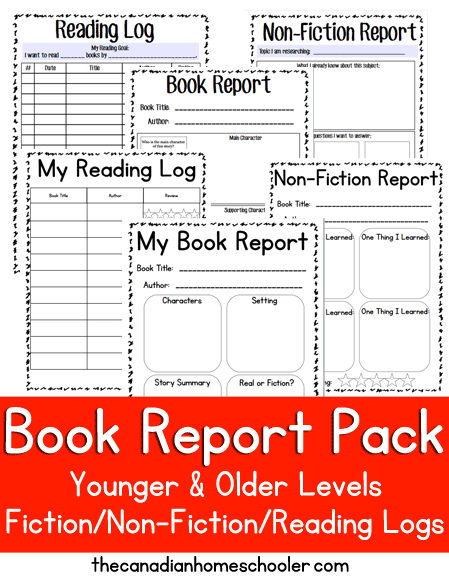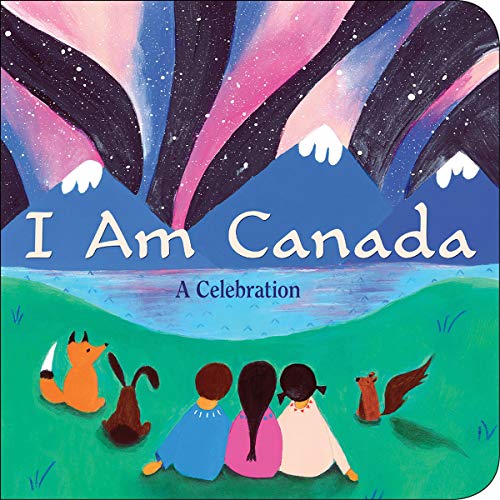Every year, on January 27th, it’s Family Literacy Day. Hosted by ABC Life Literacy Canada, the day is designed to bring awareness to families about the importance of even 15 minutes a day of literacy in your home.

Literacy Activity Ideas
Here are 10 ways to help foster a love of books and reading as well as making literacy fun in your home.
1. Use the library. Head to the local library and explore the shelves. Offering a huge range of styles of literature – poetry, fiction and non-fiction, biographies, chapter books and picture books, there is definitely something for everyone. Encourage your kids to try something different than they might usually pick.
2. Be a role model. Kids will copy you if they see that you are reading. In today’s digital world, it is harder for kids to see you actually reading when you use an eReader, so don’t forget to use an actual book once in a while so they can see it in your hands. Let them snuggle with their own books beside you.
3. Read to them. It doesn’t really matter what age range they are, your children can always benefit from you reading aloud to them. Family chapter books read together can provide a bonding (and learning!) experience. If they are older, find books related to topics or themes in your homeschool days – like living history books. Bring the world to life through books! Try these tips from Canadian children’s author, Robert Munsch.
4. Try a different method. If your child has a hard time reading, or just doesn’t like it much, be flexible and come up with a new idea. Why not see how they respond to comic books or graphic novels, which are much more visually oriented while still offering plenty of dialogue to keep them reading? See if books they want to read are available as audio recordings, so they can listen and read-along at the same time. If your kid is a gamer, read a walkthrough of their favourite game together.
5. Take it off the page. Is there a way you can present a story off the pages of the book? Try crafts, book reviews, dramatic reenactments, debate the choices of the characters, rewrite the ending, paint a picture of the setting, design a board or computer game about the story, write the author a letter about your thoughts, etc.
6. Keep track. Make a list/chart/poster of all the books you/your child have read in a month. Set goals of how many books to read in a month or within the year. Can you reach it?

Download a Book Report Pack Freebie for Elementary & Middle School Readers
7. Play games. Using games like Boggle, Scrabble, and Bananagrams are great ways to help develop and hone language, spelling and reading skills. Try a game like Ukloo – reading skills scavenger hunts. Plus, they are just a lot of fun.
8. Write your own adventure. Use your child’s interests to get them writing. Journal your days, use story prompts on a theme they love, try mad libs, send emails or letters to friends, family, or penpals, etc. If they are too young to actually write successfully, get them to orally tell you what to write for them. Repeat it back as you go – pointing at the words as you read them, so they can see what they said. They could even try writing their own story!
9. Stick to it. Get magnet letters or miscellaneous words and stick them on the fridge. Leave notes for your kids to read randomly and encourage them to do the same. Or use post-its and leave them little messages in unexpected places – on the mirror, in their hat, on top of their lunch, on their pillow, etc. Make it a fun game.
10. Find a Friend. Whether it’s a local or online reading club, their best friend, or a group of homeschooling kids – sometimes talking to someone who has read the same thing that you’ve just read can really keep you motivated to read.
Family Literacy Day 2023
The theme for 2023’s Family Literacy Day is to celebrate your family heritage. It’s a great opportunity to study your family history together. Because Canada is country with such diverse cultures and peoples – taking the time to learn about your ancestry can be a fun adventure. It’s a chance to ask questions like:
- Did anyone in your family immigrate to Canada, and – if so, from where? How long ago?
- Do you speak a language other than English? Why?
- What are your family’s special or traditional foods or ceremonies?
Interview family members. Look at old photographs. Read books about the culture your ancestors belonged to.

Download This Family History Research Pack Freebie.
Or, if you are like me – an adopted, white Canadian without a strong heritage to take that pride in – learn more about Canada’s history. Figure out what makes your proud to be Canadian. For me, one of the reasons IS that we are such an amazingly diverse country. I can learn so much about different people, their traditions and cultures, and more just by talking to the people in my community.
If you can find it, I recommend the book (affilliate link) “I am Canada: A Celebration” by Heather Patterson. It is a wonderful picture book about Canada’s diversity.

Find out more about the 2023 Family Literacy Day plans – see if there’s an event near you.
So, this Family Literacy Day (and every other day!) challenge yourself to add at least 15 minutes of reading or language skills to your day with your children. Let’s help them love language and books!
Special Days in Canada
- How to Keep a Toddler Busy While Homeschooling - March 21, 2024
- 25+ Things Your Kids Learn From Video Games - March 20, 2024
- 10 Words For New Homeschoolers - March 20, 2024



